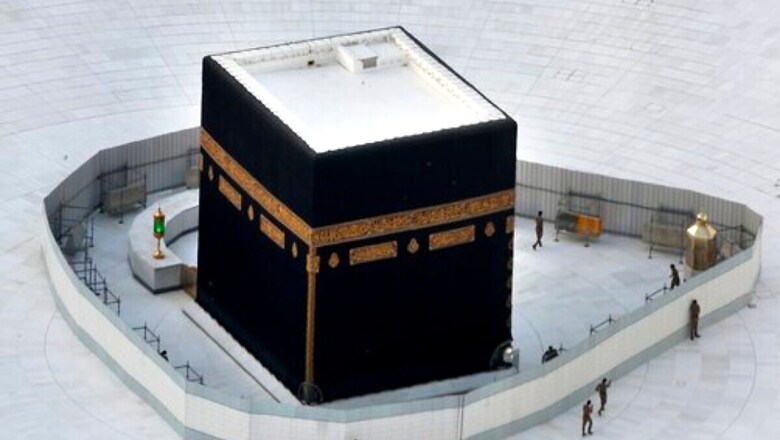Not a Footnote: Prophet Muhammad’s First Wife Was a Successful Businesswoman Who Paid to Free Slaves

views
Muslim theologists, jurists, and philosophers over the centuries have concluded that for a woman to embrace Islamic life, she must not step out of the house unless absolutely necessary, and certainly never for fun.
Muslim women and their issues are the most debated protracted subjects in Islam, even more than jihad. The best Muslim minds, from the days of the Prophet and thereafter, have been exercised and obsessed with the subject of women—what they should wear, study, eat, how they should bathe, sleep, how long they should grow their nails, what the decibel levels of their voices should be when they speak, how they should keep themselves chaste and yet desirable for their husbands, how they should be punished for offences of commission and omission, what degree of beating is necessary for discipline, and so on.
Given the volume of instructional manuals for Muslim women, one would imagine that the religion of Islam was revealed with the sole objective of taming the wayward women of the world and to keep them from having indiscriminate sex, when the truth is, in pre-Islamic Arabia, it was the male of the species who was sexually promiscuous.
This was the reason that Islam, as revealed in the Quran, tried to give women equal standing and rights. This is all the more remarkable given the social climate of medieval Arabia. Women in pre-Islamic Arabian society were considered subhuman. On the one hand, female children were undesirable and were often killed at birth. On the other hand, adult women were hugely desirable, irrespective of whether they were wives, stepmothers, or slaves. It was a common practice for the eldest son to take as wives his father’s widows inherited as property with the rest of the estate’. Note the term ‘wives’, which puts no limit to the number. An adult woman in Arabia had a very limited role beyond her sexual function. The lucky ones managed to fulfil their sexual responsibilities as one of several wives of a rich man, while the slaves or poor had to work in brothels, vulnerable to both sexual violence and debasement.
Even today, horror stories of the sexual exploitation of women at the hands of Arab men are frequently reported in the media. Clearly, the humanizing touch of Islam has not been able to penetrate the thick walls of male entitlement and old-fashioned debauchery of Arab society.
During Prophet Muhammad’s time, the only women to escape this subhuman existence were the beloved daughters of tribal chieftains, especially if they survived their male siblings. Despite this, there is only one recorded woman in pre-Islamic Mecca who had any agency over her life. As we’ve seen, this was Khadija, a successful businesswoman who had large trading caravans going in and out of Mecca. She was the daughter of a rich merchant who inherited her father’s business. Muhammad, her distant relative, came to work for her. As he gained her trust, he started to accompany the caravans. Over time, Khadija increasingly came to rely on him and proposed marriage.
Most accounts agree on these facts. Thereafter, discrepancies creep in. For instance, while everyone agrees that Khadija was older than Muhammad, the age difference varies across accounts. Some Sunni versions say that she was forty at the time of her marriage and Muhammad twenty-five. Also that she was a widow who had a few children from her previous marriage. Some Shia accounts put her age at twenty-eight and refer to her as a virgin. These variations can be explained by the fact that there was no tradition of history writing during the Prophet’s time; the first account of his life and times was written a century after his death.
The importance of Khadija lies in the fact that not only was she the first person to convert to Islam, but she also used her enormous wealth to support Prophet Muhammad and the early Muslims. She paid to free slaves and stood as a shield between her husband and the rest of the Meccans, who were up in arms against him for questioning their existing religious beliefs. Owing to her family’s stature, as long as she was alive, no harm came to Prophet Muhammad; it was only after her death that he had to escape to Medina. An Islamic proverb acknowledging her contribution says: Islam did not rise except through Ali’s sword and Khadija’s wealth.
Moreover, her marriage to Prophet Muhammad was monogamous. She was his only wife at the time and the only one to have children with him—it was these children who carried forward the Prophet’s line of succession. Hence, she is respectfully referred to as the mother of the believers. It was only well after her death that the Prophet took another wife, and then another, thereafter taking several others. With a few exceptions, all his marriages were with war widows and took place after he had established the first Islamic state in Medina.
How appalling it is then that this astonishing and unparalleled story of a remarkable medieval woman has been relegated to the footnotes of Islamic history, and is remembered only for her piety and devotion to her husband. Subsequent Islamic narrations, while dwelling on Prophet Muhammad’s relationship with his youngest wife, Aisha, gloss over the nature of his relationship with Khadija, which was clearly based on equality and mutual respect. When Prophet Muhammad’s actions are held as Sunnah, worthy of emulation, why don’t Muslim men emulate the beloved Prophet when it comes to marrying older, widowed women? Where has this craving for young, virginal, stay-at-home wives come from? It is certainly not Islamic.
Coming back to Khadija, could she be the reason that the early Quranic verses revealed to Prophet Muhammad tried to reform Arab society, especially in its treatment of women? Of course, before the society of the time could contemplate giving equality, it had to first recognize women as fellow humans, and that is what the Quran sought to do, with limited success. As Laila Tyabji points out, ‘Islam is the only religion that gave women a fixed share in the property/ estate of her father and later her husband. People now say that it treats women as inferior to men because a daughter gets less than the son, but remember this happened in the seventh century when women were treated as no more than chattel. Can you imagine what Prophet Muhammad would have done today?’
Read all the Latest News, Breaking News and Coronavirus News here




















Comments
0 comment